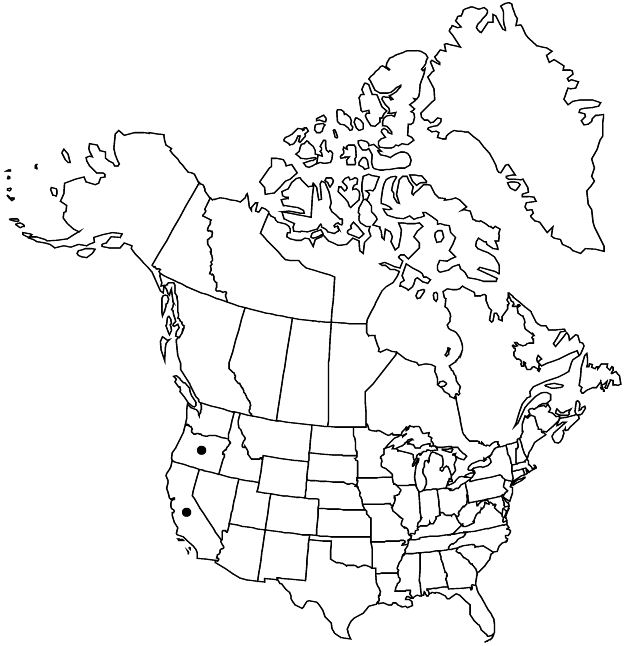Difference between revisions of "Viola lobata var. integrifolia"
in W. H. Brewer et al., Bot. California 1: 57. 1876.
Endemic
Synonyms: Viola lobata subsp. integrifolia (S. Watson) R. J. Little
FNA>Volume Importer |
imported>Volume Importer |
||
| (2 intermediate revisions by 2 users not shown) | |||
| Line 1: | Line 1: | ||
{{Treatment/ID | {{Treatment/ID | ||
|accepted_name=Viola lobata var. integrifolia | |accepted_name=Viola lobata var. integrifolia | ||
| − | |accepted_authority=S. Watson | + | |accepted_authority=S. Watson |
|publications={{Treatment/Publication | |publications={{Treatment/Publication | ||
|title=in W. H. Brewer et al., Bot. California | |title=in W. H. Brewer et al., Bot. California | ||
| Line 40: | Line 40: | ||
-->{{#Taxon: | -->{{#Taxon: | ||
name=Viola lobata var. integrifolia | name=Viola lobata var. integrifolia | ||
| − | |authority=S. Watson | + | |authority=S. Watson |
|rank=variety | |rank=variety | ||
|parent rank=species | |parent rank=species | ||
| Line 54: | Line 54: | ||
|publication year=1876 | |publication year=1876 | ||
|special status=Endemic | |special status=Endemic | ||
| − | |source xml=https:// | + | |source xml=https://bitbucket.org/aafc-mbb/fna-data-curation/src/2e0870ddd59836b60bcf96646a41e87ea5a5943a/coarse_grained_fna_xml/V6/V6_234.xml |
|genus=Viola | |genus=Viola | ||
|species=Viola lobata | |species=Viola lobata | ||
Latest revision as of 22:19, 5 November 2020
Leaves: basal blades unlobed; cauline blades unlobed, deltate to rhombic, ovate, or reniform-cordate, usually longer than wide, margins ± serrate, crenate-serrate, or dentate to deeply serrate or coarsely and irregularly lacerate, often entire distally, apex acute, often long-tapered.
Phenology: Flowering Mar–Aug.
Habitat: Dry, shaded or open forests
Elevation: 300–2100 m
Discussion
Variety integrifolia is considered uncommon; it occurs from southwestern Oregon to southern California and is possibly more common in Oregon than California. Plants in the same population may have subserrate, deeply serrate, or irregularly lacerate leaves.
Selected References
None.
Lower Taxa
None.
